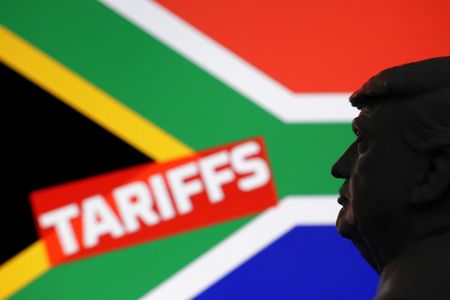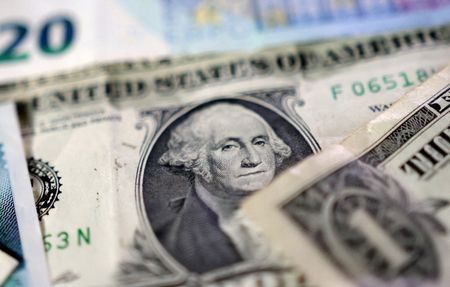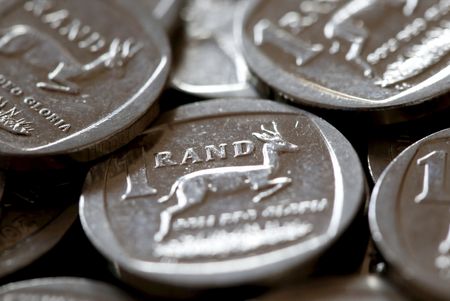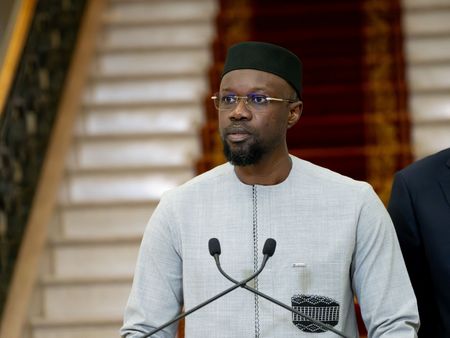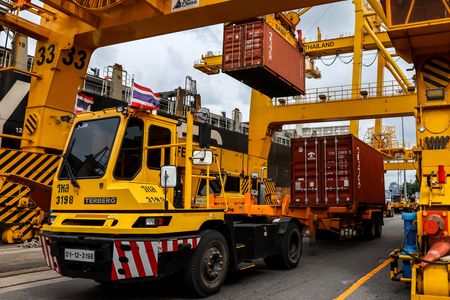By Nellie Peyton
JOHANNESBURG (Reuters) -South Africa on Monday outlined support measures for local companies that will be hit by a 30% U.S. tariff this week, including exemptions from some competition rules and financial support facilities.
It also dismissed speculation that its failure to negotiate a lower tariff was because of its local affirmative action policies, which U.S. President Donald Trump has criticised.
Africa’s biggest economy has tried for months to negotiate a deal with Washington, offering to buy U.S. liquefied natural gas and invest $3.3 billion in U.S. industries in a “framework deal” proposed to Trump’s team.
But the effort was unsuccessful, even after Pretoria made a last-minute attempt to improve its offer.
South African officials say the U.S. tariff could cause tens of thousands of job losses, especially in the agriculture and carmaking industries, as Trump pushes to reshape global trade in favour of the United States.
Addressing a press conference, South Africa’s trade and foreign ministers said a “block exemption” from some aspects of the Competition Act was being developed that would allow competitors to collaborate and coordinate.
They said the exemption would be published by the end of this week.
The government is also working on a support programme, which will include a working capital facility and plant and equipment facility, and ways to cushion the impact of job losses via the Unemployment Insurance Fund.
The ministers said South Africa posed no “trade threat to the U.S. economy nor its national security,” emphasising that its exports supported the U.S. industrial base and often do not compete with U.S. products.
Foreign affairs minister Ronald Lamola did not want to focus on speculation the country faces such a high tariff because of points of tension with the U.S. like its policies to address racial inequality or genocide case against Israel at the World Court, which Trump opposes.
He said South Africa would continue to engage with U.S. counterparts on the basis of the framework deal it had submitted.
Trade officials said an export support desk would try to help companies enter new markets by linking them up with embassies and potential buyers. A more detailed set of support measures will be discussed at a cabinet meeting on Wednesday.
(Additional reporting by Sfundo Parakozov, Anathi Madubela and Siyanda Mthethwa;Writing by Alexander Winning, Editing by Alexandra Hudson)

